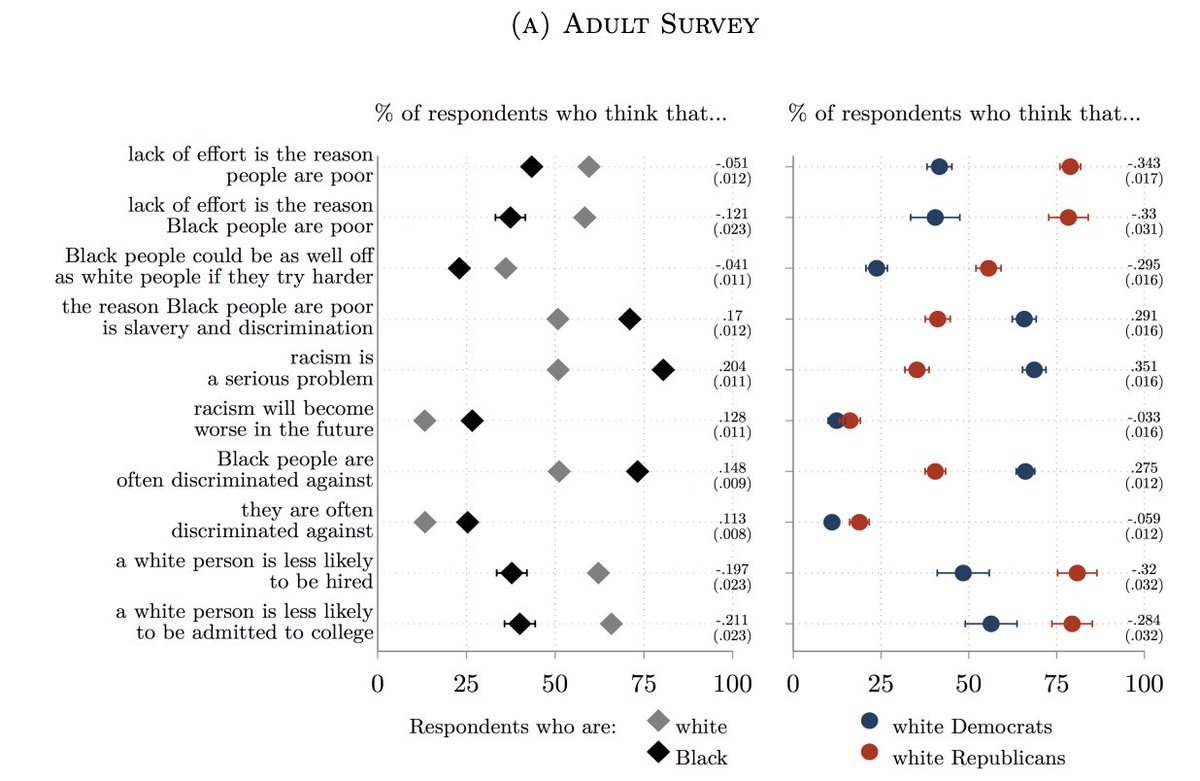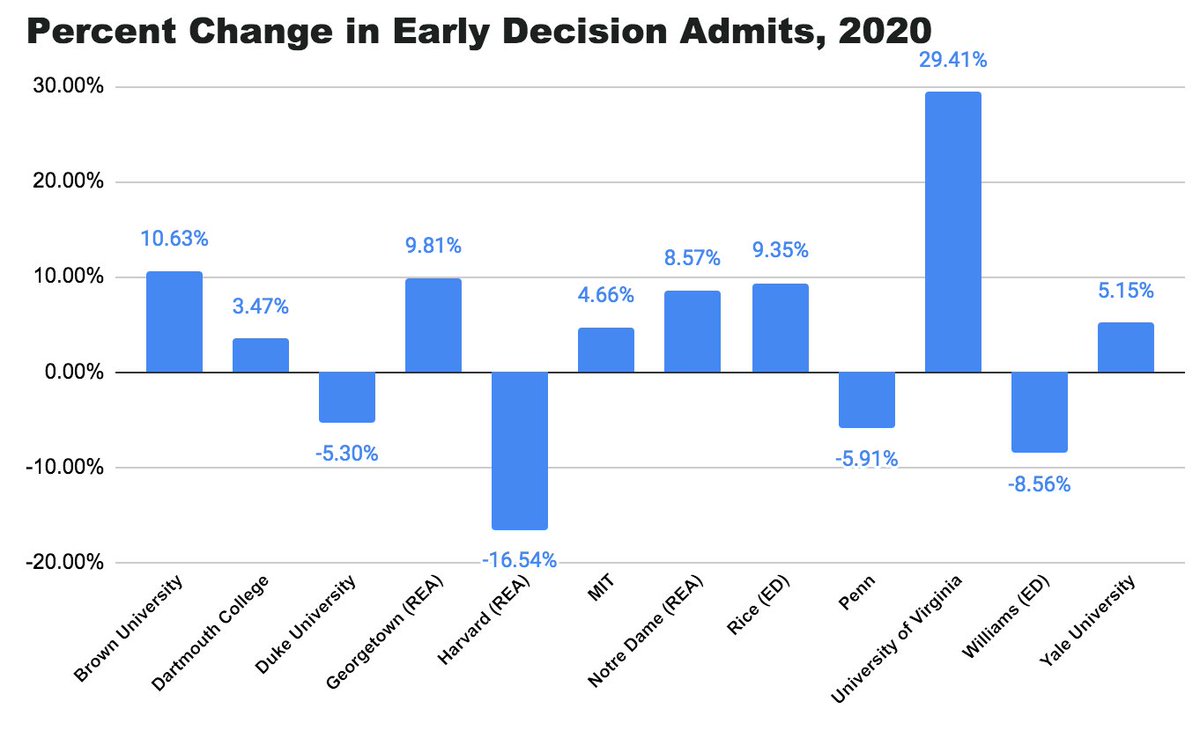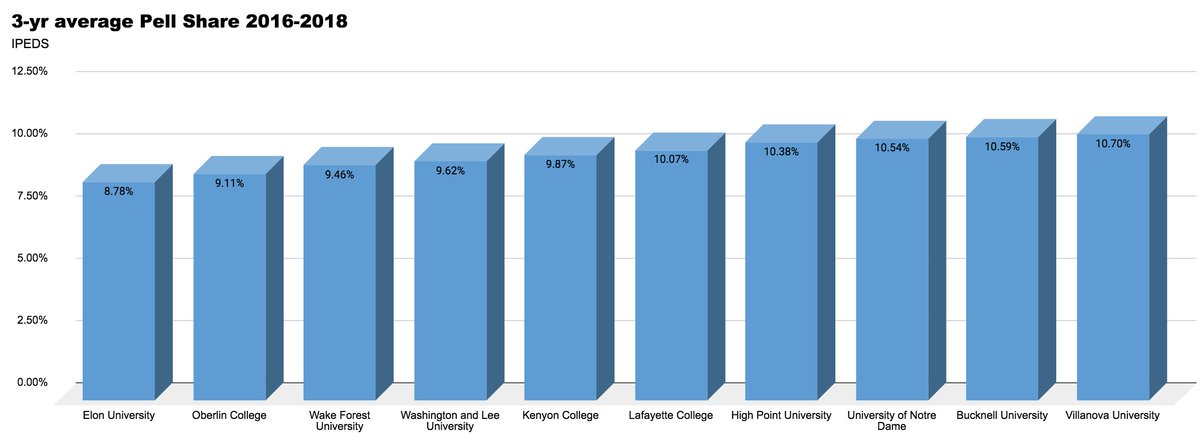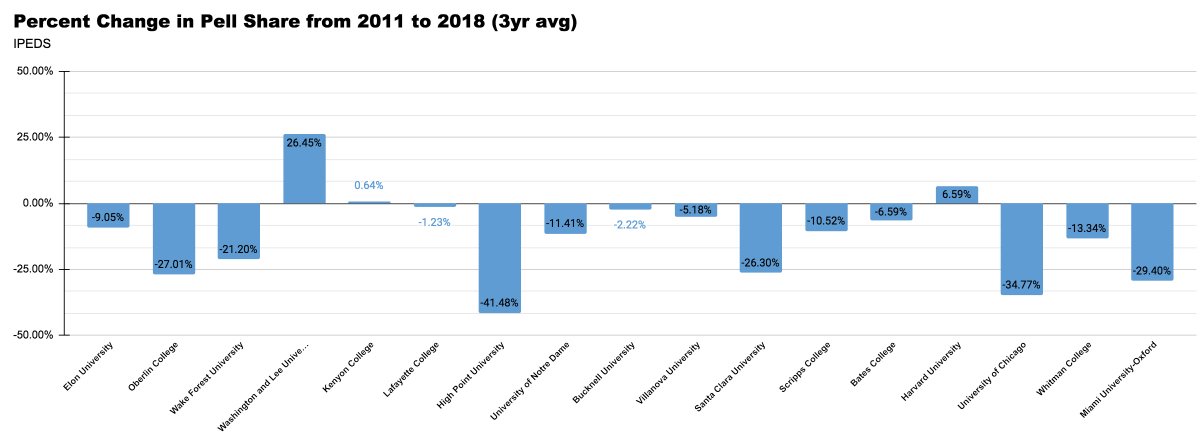
Almost all the loss in college enrollment due to COVID took place at community colleges.
Community colleges get mentioned once in the piece.
And a high priced college consultant gets 4 paragraphs.
wsj.com/articles/colle…
Community colleges get mentioned once in the piece.
And a high priced college consultant gets 4 paragraphs.
wsj.com/articles/colle…
I'd be a lot more interested in a piece that talked about how the decline in enrollment is largely from the for-profit and 2-yr sector and wrestled with why that's occurred. That, of course, would have to be in another newspaper. 

That more interesting piece might want to take a good look at why as the for profit sector shrank, the share of women enrolled in it grew. 

The more interesting piece might think about how the picture looks different if we're talking about first-time students right out of HS (the kinds who hire consultants) vs. all undergrads vs. students over 24. 

The more interesting piece would have talked to @dhfeld1 and thought more about the labor market and less about the fairness of admissions policies.
https://twitter.com/dhfeld1/status/1434992890585964551?s=20
The more interesting piece would have talked about gender, marriage, employment, historical trends, and more. 

Last thing to say on this piece: the thing that set me off was this absolute garbage paragraph, utterly devoid of evidence and designed to tap into racial animus. 

The more interesting piece would have really looked at the data, like @JonBoeckenstedt does in this terrific post.
https://twitter.com/JonBoeckenstedt/status/1435378519282905090?s=20
So, it just gets worse for this piece.
It's got this graphic that purports to show the white men are enrolling at the same or even lower rates than men of other races or ethnicities. It fits in with the overall "white men are the real victims" vibe.
It's got this graphic that purports to show the white men are enrolling at the same or even lower rates than men of other races or ethnicities. It fits in with the overall "white men are the real victims" vibe.

Except it turns out that graphic is flawed because it's making a very basic statistical error, as noted by @hyperplanes.
https://twitter.com/hyperplanes/status/1435033148967038980?s=20
You can't use the Current Population Survey to make claims about college enrollment by parental income, because parental information is present in the CPS only if the young adult is currently living at home, or is temporarily away from home, (i.e., in college).
So the piece leaves out a huge chunk of the populace and its denominator is not at all reliable.
This mistake would be more forgivable if it hadn't already been explicitly called out by @dynarski and @chingos in this @brookings piece. brookings.edu/research/how-c…
So--and this actually is my final word on that WSJ piece--if you were wondering, do white men *really* have it worse than everyone else when it comes to college, remember this sage advice from @dynarski and @chingos. 

Really good thread by @KeithEPhD
https://twitter.com/KeithEPhD/status/1435615174187225088?s=20
At this point, this article has reached the stage where you have to wonder if it got a single thing correct. Because one of its BIG claims is basically wrong.
https://twitter.com/JonBoeckenstedt/status/1435664121387569156?s=20
@JonBoeckenstedt looked at the data (ALL the data) and basically found that the idea that men have an admissions advantage is only true at a tiny sliver of colleges. 

• • •
Missing some Tweet in this thread? You can try to
force a refresh













